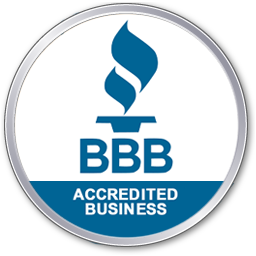If you’ve had your home or business tested for elevated levels of radon in the past, you might feel confident that your home is in the clear. But your confidence level should depend on how long ago that radon testing took place.
Radon is a naturally occurring gas that is released when radioactive metals, such as radium and uranium, decay in soil and rocks. Because radon is created in and released from the ground, it exists nearly everywhere in small amounts. However, radon can turn into a problem when it becomes concentrated indoors, leading to elevated radon levels.
Because radon has no taste, odor or smell, it can only be detected with specially designed tests. But testing your home for radon once during your occupancy likely isn’t enough to ensure your home is free of elevated levels of radon. Radon levels tend to fluctuate based on a number of factors, meaning an area that had low radon levels last year (or even last month) may have high levels of radon now. Conversely, areas that previously had high levels of radon may now have low levels.
You may be asking, “What causes these radon fluctuations?” Let’s take a deeper dive.
Factors That Affect Perceived Radon Levels
Your risk for exposure to elevated radon levels can depend on a lot of things – one of which is your location. Some areas of the country have higher levels of radon than others due to a higher prevalence of radium and uranium in their local environment.
Unfortunately, most of Oregon falls into the U.S. Environmental Protection Agency’s Radon Zone 2 designation, which means Oregonians are at moderate risk for having indoor radon levels that are higher than the national average. Portland in particular has some of the highest radon concentrations in the state, and even something as distinct as the neighborhood in which you live can impact your risk. You should never base your risk level off of results your neighbor may have received after testing their home for radon, as radon levels can even vary between households.
No matter your location, radon levels can change on a yearly, monthly or even daily basis. Here are some of the variables that can skew your radon test results.
Weather
As odd as it may seem, something as fluent as the weather can impact the radon levels inside your home. Radon levels fluctuate based on changes in the air pressure inside and outside your home, which are often brought about by varying local conditions.
- Rain storms: Radon levels are typically higher during rain storms, but it could go either way. Air rises when it’s raining, creating a lower air pressure around your home. When this pressure drops, it’s easier for radon to rise up through the soil and into openings in your home.
- Strong winds: Windy conditions can create positive or negative air pressure in your home during radon testing, which will ultimately impact your results. Whether your radon levels will go up or down on a windy day depends on whether the radon is being pushed out of your home or sucked in.
- Cold weather: Radon levels are typically higher in winter months because the air outside your home is cooler than the air inside your home, creating a vacuum effect. The use of a heating system also pulls outside air up and into your home, which can allow more radon to enter.
Air Vents
Similar to the use of heating systems, any air vents that pull in outside air and mix it with inside air that already contains radon may increase radon levels in your home. Examples of home systems that may increase indoor radon levels include:
- Clothes dryer
- Fireplace
- Vent fan
- Furnace
- Space heater
This principle also applies to natural ventilation methods, such as opening windows and doors. If this causes elevated radon levels, they will likely return to prior levels once the windows and doors are closed.
Types of Radon Testing
Because radon levels fluctuate, radon testing monitors radon levels over a period of time to provide an average result. This time period may range from as little as 48 hours to up to 90 days or more, depending on your specific needs.
- Short-term testing: Short-term tests measure indoor radon levels over the course of a few days. These tests typically last less than 54 hours, though it’s common for many companies to only test for 24 hours. Shorter testing windows allow for greater discrepancies, meaning your results will be less accurate. For this reason, short-term testing is typically only recommended for things like real estate transactions, when results need to be returned quickly.
- Long-term testing: As the name implies, long-term testing refers to tests that monitor radon levels for 54 hours or more – often for about 90 days. This type of radon testing is necessary to achieve more accurate results because it takes into account daily radon fluctuations, leaving you with better insight into your home’s average radon concentration.
What If There Are High Levels of Radon in My Home or Business?
If your test results indicate elevated radon levels (at or above 148 Becquerels per cubic meter or four picocuries per liter, per the EPA), it’s recommended that you reduce your indoor radon levels to lessen your exposure. Thankfully, there are some easy steps you can take to mitigate radon, such as installing a radon mitigation system.
Radon mitigation systems can:
- Reduce radon levels after radon has entered your home or business.
- Prevent radon from entering in the first place.
These systems will either use a fan to expel radon from the lower levels of your building or ventilation to circulate air through your basement or crawlspace.
If you install a radon mitigation system after discovering elevated levels of radon, it’s important to repeat testing afterward to ensure the system is working and that the problem has been fixed.
Radon fluctuations inside your home are inevitable, but it’s necessary to stay on top of them to avoid excess radon exposure. Radon testing makes that easy.
Alpha Environmental offers long-term and short-term radon testing and radon mitigation services to help bring you peace of mind. Contact our experienced professionals today to schedule your radon testing!




